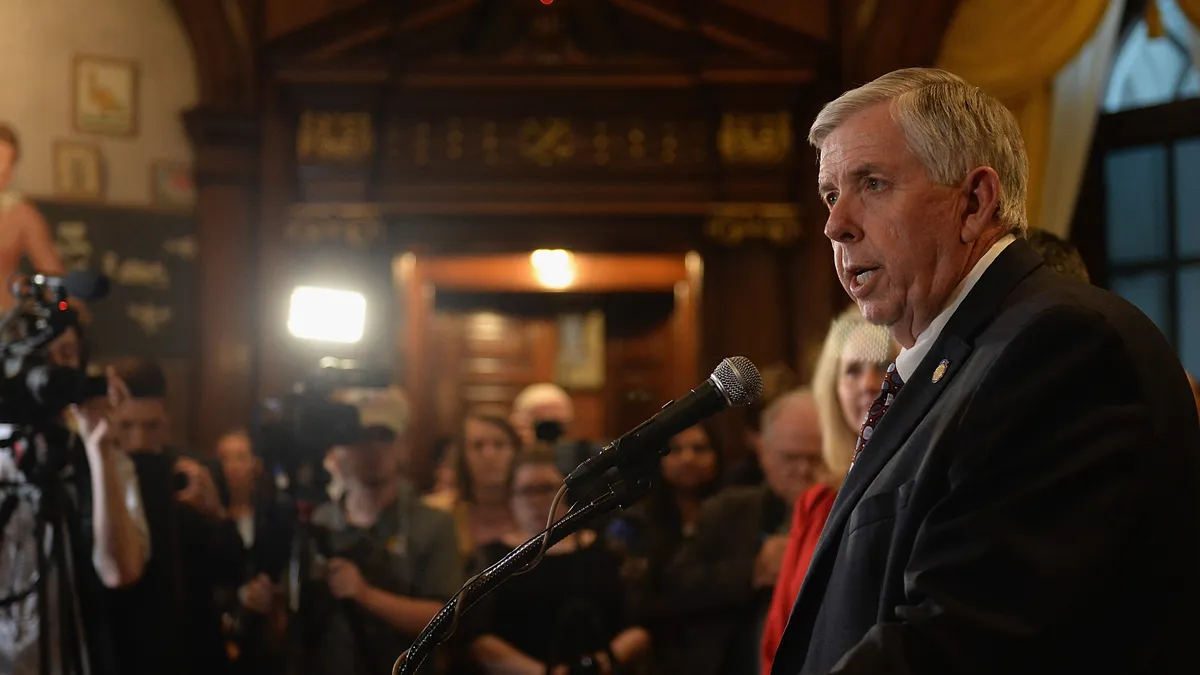Dive Brief:
-
Missouri's public colleges will be able to hike tuition as much as they'd like starting in July 2022 after the state's governor signed a bill last week removing a price cap.
-
Currently, Missouri public schools can only raise tuition on certain students to keep up with inflation or compensate for state funding cuts.
-
The new law also includes other measures that affect higher education in the state, including giving college athletes the ability to profit from use of their name, image and likeness.
Dive Insight:
The state's legislature, concerned with college affordability, in 2007 passed a bill that tied public institutions' tuition increases on in-state resident undergraduates to the consumer price index. Colleges could ask Missouri's Coordinating Board for Higher Education to waive this limit, or they could risk having to return part of their state appropriations if they exceeded it.
Legislators gave public colleges a little more wiggle room in 2018, approving a law that allowed them to raise tuition up to 5% above the CPI if state appropriations fell.
The bill that Missouri Gov. Mike Parson, a Republican, signed last week eliminates the tuition ceiling altogether. It also requires institutions that charge different tuition rates for certain programs to discontinue mandatory fees for some courses. Boosting course fees had been a method institutions could use to take in more revenue but still comply with the tuition cap.
Removing the tuition restriction is likely an acknowledgement that the state's public schools "have done an exceptional job" controlling student costs for the past 15 years, Paul Wagner, executive director of Missouri's Council on Public Higher Education, said in Forbes. Recent tuition increases have been even lower than the inflation-tied limit in the law, Wagner said.
Missouri is not the only state with such price freezing.
Eleven states have adopted rules to cap or suspend tuition growth among four-year colleges, and 10 states have done so for two-year schools, the Education Commission of the States, which tracks educational policies, found in 2020.
Public schools' ability to control tuition could be all the more important as they recover from the economic turmoil of the pandemic. However, these institutions might not fare so badly, as state budgets largely turned out better than expected in part because of federal emergency aid. One credit rating agency also recently upgraded the higher ed sector's outlook from negative to stable, citing such reasons as improving application numbers and solid state budgets.















